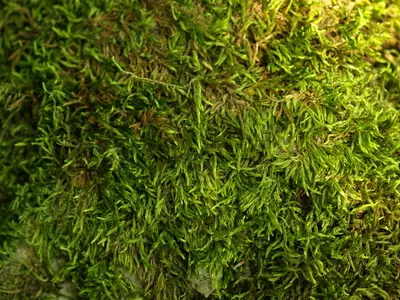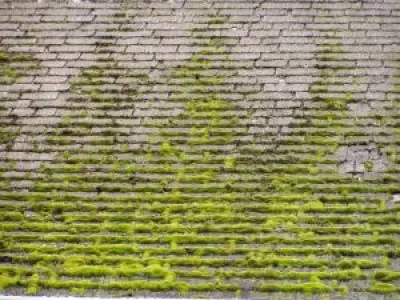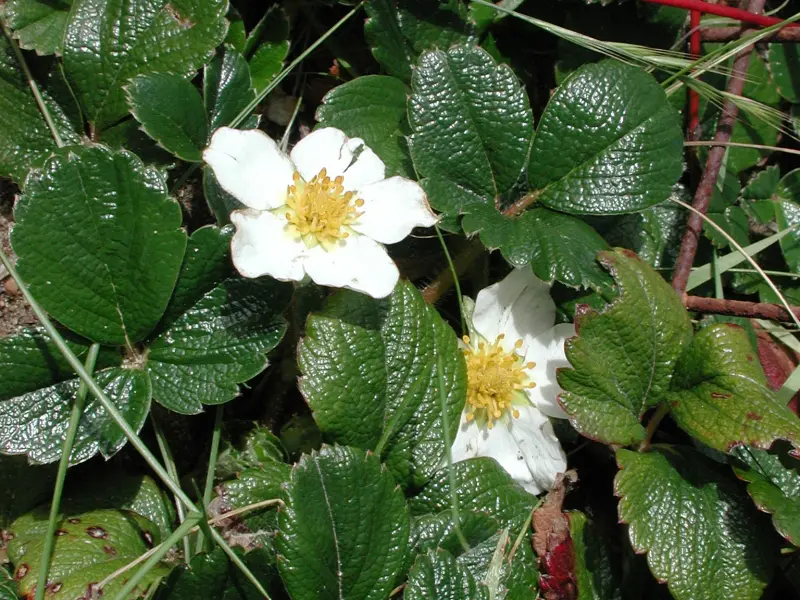Moss Control in the Northwest: How to Manage Moss in Lawns and on Roofs

Moss in the Northwest: Lawns and Roofs
It rains a lot in the Northwest, so it’s inevitable that many of us deal with moss in our lawns and on our roofs. Mosses are opportunistic, thriving in just about any location where there is access to nutrients and moisture. Mosses spread in a number of ways, but they depend on moisture to reproduce, according to Oregon State University.
Some mosses are extremely absorbent and are able to take up nutrients from water that flows over them (for example, under a shady tree where it’s wet and moist). Other mosses take up nutrients directly from soil (i.e. bare patch in your lawn) or substrate on which they are growing (i.e. cedar shake or composite roofs). So it’s no surprise that mosses take hold on our sidewalks, rooftops, driveways, trees, and in our gardens.
Moss in Lawns
Many people view moss in lawns as a problem. With the exception of rooftops, mosses don’t necessarily cause damage. Moss doesn’t kill your grass. Moss in your lawn is usually a symptom of a stressed lawn. Most likely, you’ve got poor drainage, excessive shade, poor fertility, or compacted soil. Moss grows because these conditions aren’t ideal for turf. Unless you address these underlying problems, moss is likely to return.
Consider improving soil conditions, or planting something other than grass in that area. Some good substitutes for grass in areas where mosses thrive include:
- Blue-star creeper
- Beach strawberry (a Northwest native)
- Sweet woodruff
If you’re determined to get the moss out, there are both physical and chemical controls. Moss can be killed with a number of products containing ferrous sulfate or ferrous ammonium sulfate, including Moss-Out and lawn fertilizers that contain some type of moss control. According to the Washington State University Extension, none of these materials pose serious threats to the environment; iron and sulfur are essential nutrients for grasses and tend to improve their color.
Using chemical controls such as Moss-Out can be quick, easy, and relatively cheap. But they won’t actually fix the problem in the long run. Why? You can kill the moss, leaving bare dirt. Since the conditions weren’t great for grass in the first place, moss will continue to grow and invade that particular area of your lawn.
To fix the underlying problems that promote moss growth:
- Improve soil conditions by aerating or amending the soil with compost
- Trim tree limbs or shrubs that shade out portions of your lawn
- Plant shade-tolerant grass seed or ground covers
- Improve grass growth by mowing at the right height and cutting off no more than one-third of the blade at a time
- For areas with drainage issues, consider installing a French drain or trench to prevent water from pooling
Moss on Rooftops
Moss on rooftops can damage shingles, cause water leaks, and other problems. Cedar shake and composition roofs are more vulnerable to moss problems than metal roofs (remember how moss takes up moisture and nutrients?).
Again, there are chemicals you can use to get moss off rooftops. The Washington Toxics Coalition has this handy fact sheet with suggestions on how to prevent moss on your roof:
- Keep tree limbs from touching your house or roof
- Trim overhanging branches to reduce shade and falling leaves
- Keep your roof clean
- Sweep off pine needles, small branches, and leaves, which are breeding grounds for moss
- Use a garden blower or a broom; don’t pressure wash composition roofs because it’s the quickest way to reduce the life of your roof
- Look out for early signs of moss growth, indicated by green or black discoloration
- Spot treat with moss-killing soap
- Consider mounting zinc strips along your roof peaks or beneath shingles
If you do use chemical controls, the Toxics Coalition recommends soap-based products over acid-based ones. It lists some of the least-toxic moss-killing products:
- Safer Moss & Algae Killer and Surface Cleaner II
- Bayer Advanced 2-in-1 Moss & Algae Killer
- Worry Free Moss & Algae Control
- St. Gabriel Laboratories Moss Killer
The group recommends that you avoid products containing zinc sulfates or copper sulfates because these chemicals are not biodegradable. Also, the group says, be sure that rinse water does not run off the roof or street and directly into a body of water.


